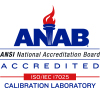 Posted on
Posted on

For many of us, a trip to the grocery store is just another chore to check of our list . Most of the time, if not all, we are unphased by how much we rely on store employees to ensure the products we are buying are properly maintained for our safety.
From the refrigerated and frozen aisles, to the deli and produce sections, and everything in between, all these different products need to be kept at precise and varied temperatures.
Refrigerated Storage
Refrigeration extends the shelf life of most products and slows the growth of bacteria that could cause foodborne illnesses such as Campylobacter, Listeria and Salmonella. Refrigerated units, coolers and display cases must be maintained at temperatures between 32 °F to 40 °F. The slightest rise in temperature can lead to bacteria doubling in number in as little as 20 minutes.
Freezer Storage
Freezers should be kept at temperature 0 °F or below to maintain the quality of frozen foods by inactivating pathogenic and spoilage microorganisms. When exposed to warmer conditions between 0 °F and 32 °F, the moisture produced activates those microorganisms, encouraging bacterial growth and deterioration.
Dry Storage
All other canned and packaged goods may not have strict temperature limits, but they do need to be held within guidelines. Most dry goods can be kept in temperatures ranging from 50 °F to 70 °F. To ensure the maximum shelf life of the product, keep temperatures at or around 50 °F and keep away from sources of heat and light.
Monitoring Solution
Temperature control is essential to maintaining food safety and slowing the growth of bacteria. That’s why the FDA requires the use of temperature recording devices, also known as data loggers. Implementing a data logging system not only provides verification that temperature controls are consistently met, but also the validation required by inspectors.
Data loggers should be placed throughout a storage area or unit to ensure adequate and efficient operation. Many data loggers are equipped with alarms to notify users when specified temperature limits have been breached. Let’s say if a cooler door was left ajar or a power outage occurred, the data logging system would immediately alert the user, giving them time to take corrective actions and prevent product loss.
MadgeTech data loggers are designed to streamline the varying temperature monitoring requirements of a grocery store, all while satisfying strict government regulations. MadgeTech also offers free data logger software and Cloud services, providing users with all the tools needed for compliance.
To view data logging solutions for grocery store monitoring, click here.
For more information about MadgeTech data loggers and how they can benefit your store, call us at (603) 456-2011 or email [email protected]






